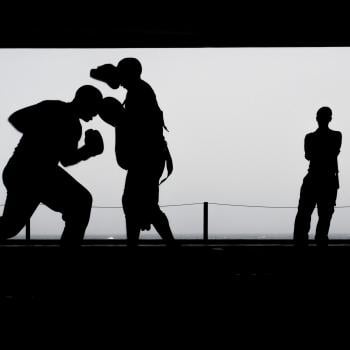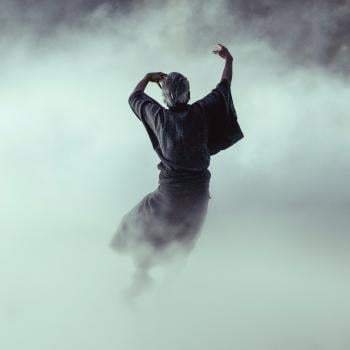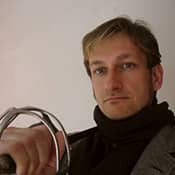How often do you wake up feeling happy? How many days do you look forward to going to work? Out of the people you see every day, how many are you excited to spend time with?
Do you realize that this is the job of your spirituality?
In the world of martial arts, there are a lot of arguments over what schools or styles are the most effective. These debates go on endlessly, but my teacher once presented me with a very simple method for evaluating which ones are the best:
"Look at their old people."
The reasoning is simple. Martial arts are designed to preserve your life. The best ones will get you fit, develop your reflexes, use safe training methods, help you deal with stress, and (of course) maximize your chance of surviving conflict unharmed. If a martial art delivers on those promises, the result is someone who gets through life with the least wear and tear possible. Unlike football or track and field, where you are expected to peak young and retire with a lot of injuries, good martial arts can be practiced lifelong and you'll still be in peak performance at a very old age.
Thus, all it takes to tell a good martial art from a bad one is to look at the 50- and 60-year-olds who practice it. If they are as spry and healthy as the 30-year-olds, then the art is worth practicing. If they suffer from a lot of old injuries—or worse yet, if there are no older folks practicing it at all—then something is wrong. The art isn't delivering what it's supposed to, and there's no long-term value to practicing it.
A similar criterion can be applied to spirituality. There are different objectives for various spiritual paths: get to heaven, earn good karma, find enlightenment, be reborn as a god—or maybe the objective is just to do the most you can for your family and community. People can argue forever about which of these goals is most important, just like they can argue about the merits of Krav Maga compared to Jujutsu.
But regardless of what myths, practices or hopes a spiritual path pursues, it should improve quality of life. There's an easy test for whether your path does that. Ask yourself a simple question:
"Twenty years from now, what will my spirituality have gotten me?"
I don't mean things like energy, karma, hope or comfort. Every spiritual path boasts these kinds of things, just like every martial art says it's the most badass. I mean the tangible benefits. Spirituality is woven into every aspect of life, which makes it one of the most potent factors to influence whether you are happy in your career, family life, and personal pursuits.
So ask yourself, are you totally happy with life?
If you are, high five. Glad to hear it. Stop reading this article and go have some fun.
For the rest of us, there's something you can do about it. It's time to take a look at the other people in your spiritual tradition, especially those who are older than you (or those who came before you, if you're already an elder). Some of the things to notice:
- Do your elders seem like they are content with their present-day lives? Or do they mostly reminisce about past glory days? Does it seem like they had to give up on their dreams?
- What do your ceremonies do? Ceremony can be a powerful emotional experience, but what is the take-away? Has ritual become just a social occasion, or do people take revelations from ritual and make actual changes in their lives?
- Do the people in your tradition feel supported by the community, or do they complain about it?
- How often do you change something in another area of your life (job, school, relationship, long term plans) because of something in your spirituality?
- Are leaders, teachers and elders burnt out? Or do they feel like their work is rewarding?
These are important questions to ask, because the answers say a lot about your spirituality. Some spiritual paths are built to reinforce the life you already lead, not to encourage you to change or improve your life. They are what historian Bruce Lincoln calls religions of the status quo.
Religions of the status quo offer very specific strategies. If you have no money, they tell you to be happy with what you do have. Or they tell you to do ceremonies that will help you attract wealth, but a year later nothing is different. These strategies are excellent at helping you feel better about the bad things in your life, but they are not effective at helping you change it.




